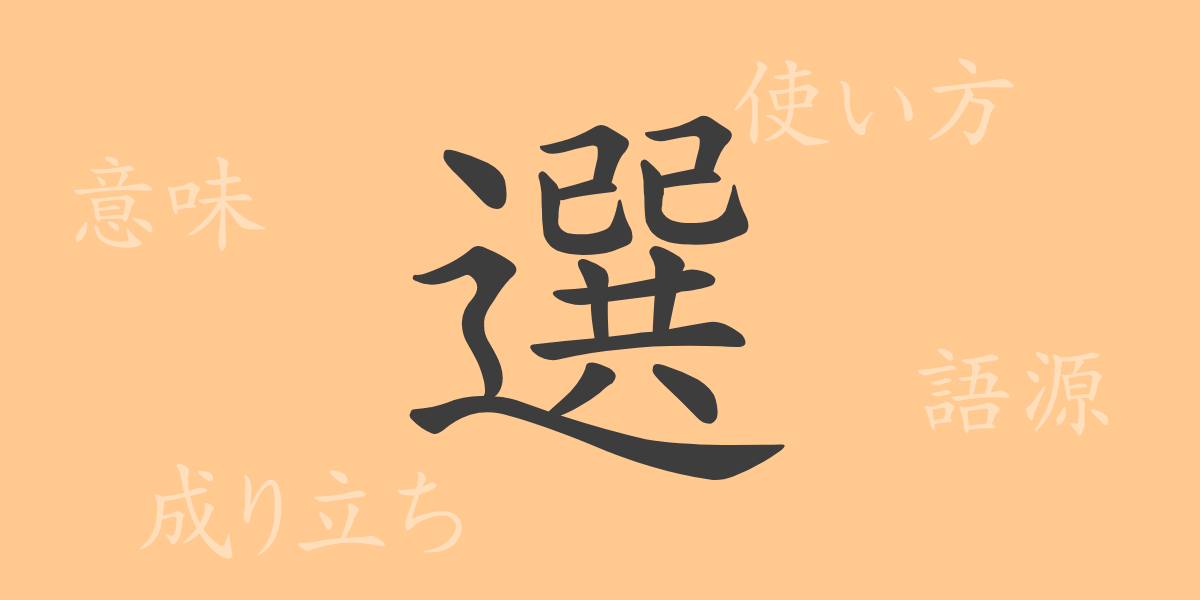Each commonly used kanji in Japanese supports a rich expression, having its own background and deep meaning. “選” (せん), a character closely related to our daily lives and representing choice, plays a crucial role. This article delves into the origins, meaning, usage, and related phrases of “選,” enhancing our understanding of its role in Japanese culture and language for richer communication.
Origins of 選
The kanji “選” originated from ancient China’s oracle bone script. Initially, it combined “辵” (しんにょう), indicating footprints, with “巽” (たつみ), depicting the sorting of sheep’s wool. From sorting wool, the meaning evolved to choosing, and over time, the character also came to signify selecting the best among options.
Meaning and Usage of 選
“選” encompasses meanings like “to choose,” “to select,” and “to pick out.” It’s a kanji frequently used in conversations and documents to indicate selecting from among options. It also appears in societal contexts, like in the words for election “選挙” and player “選手.”
Readings, Stroke Count, and Radical of 選
The kanji “選” has multiple readings, used according to the context:
- Readings: On’yomi “セン”, Kun’yomi “えら.ぶ”
- Stroke Count: 15 strokes
- Radical: 辵 (しんにょう), associated with movement
Phrases, Idioms, and Proverbs Using 選
There are many phrases and idioms involving “選,” each carrying specific meanings:
- 選挙 (せんきょ): The act of voting to choose representatives or opinions.
- 選考 (せんこう): The process of selecting the best.
- 選手 (せんしゅ): An athlete chosen to compete in sports or other competitions.
- 選択肢 (せんたくし): Various options available for selection.
- 目から鼻へ抜ける (めからはなへぬける): Being chosen over others, literally translates as “going from the eyes to the nose.”
Conclusion on 選
The kanji “選” symbolizes our choices and plays a significant role both in daily use and in broader social contexts. By understanding the origins, meanings, and applications of “選,” as well as related phrases, we gain a deeper insight into Japanese language and culture. It is hoped that this exploration helps expand your choices and knowledge in navigating Japanese expressions.

























